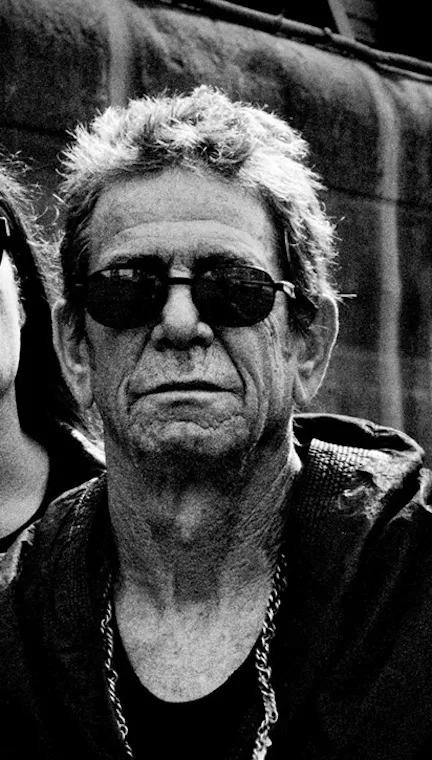Sunday, October 27, 2013
Music Rock legend Lou Reed dead at 71
Posted By Pat Moran on Sun, Oct 27, 2013 at 7:43 PM
Though he had a fluke hit in 1972 with "Walk on the Wild Side," singer/songwriter/N.Y.C. poet Lou Reed exerted an influence on modern American music that far outstripped his commercial impact. As art rock pioneer and former Roxy Music synth maestro Brian Eno put it about Reed's seminal band The Velvet Underground, "Only five thousand people ever bought a Velvet Underground album, but every single one of them started a band." Without Reed's clear-eyed, literate and street smart view of America, and his band's merging of high art, the Avant-garde and bristling rock and roll, there would be no punk, no indie, no music containing the pulse of life as it's really lived.

- Anton Corbijn
Lou Reed died Sunday in Southampton, N.Y., of an ailment related to a liver transplant he had received in May. Reed had been living in Southampton with his wife, fellow musician and artist Laurie Anderson.
Between Thought and Expression was Reed's title for a 1992 anthology of his work, indicating his love of the written word. A student of poet Delmore Schwartz and a fan of Raymond Chandler's sharply observed crime fiction, Reed strove to elevate the content of rock music. As he told the L.A. Times in 1992, "(I wanted) to bring a Brecht/Weill sensibility to it. Why not? You're not 15 forever, but suppose you like rock 'n' roll? Do you want to always keep listening to stuff from when you were a kid?"
To that end, Reed's solo work was a cleverly encrypted book of his life. His youthful, harrowing experience with electric shock therapy is documented in the 1974 rocker "Kill Your Sons." "Vicious" comes from a line lifted from Velvet Underground benefactor Andy Warhol. "Walk on the Wild Side" is a snapshot of the glamorously doomed denizens of Warhol's ongoing Factory drama (in which the Velvets were bit players).
"Walk on the Wild Side" briefly made Reed a glam rock darling. Yet, many fans failed to catch Reed's empathy for the subjects of his songs and his own humanity. The 1976 LP Coney Island Baby explored that most open-hearted genre, doo wop, for which Reed professed a lifelong admiration. Indeed, there is a thread of warmth, restless honesty and curiosity that runs through Reed's work, from the 1989 lament for AIDS-ravaged lives in "Halloween Parade" to his incisive and humorous take on Edgar Allan Poe, The Raven from 2003.
Every death becomes as much about the mourners as the deceased. Lou Reed is the reason I care about music. Reed's live 1973 LP Rock 'n Roll Animal, one of his few concessions to commercialism, was my introduction to his music and worldview. It was not the first record I ever bought, but it was the first one I ever stole - from a public library. His acerbic honesty, inventiveness and inscrutability stuck a chord for a kid growing up in the stultifying suburbia of the '70s. Somehow it seems fitting that I came to admire Reed, an iconoclast and a man of words, through theft from a house of learning.
Speaking of...
-

5 Ways to Socialize Even When You Are Stuck at Home
Oct 19, 2020 -

Proper Einsteins EP "Commercials" available now
Oct 1, 2020 -

Julia Funk Band JULIA on Madison Ward Show
Sep 17, 2020 - More »
Latest in The CLog
More by Pat Moran
-

Dirty South Revolutionaries' Johnny Moss Keeps the Music Coming
Oct 17, 2018 -

Jeff Jackson's New Book Kills Rock Stars
Oct 10, 2018 -

Calvin Richardson Comes Home
Oct 3, 2018 - More »








